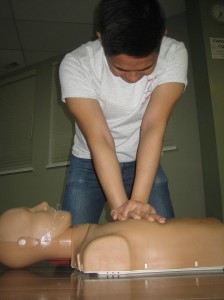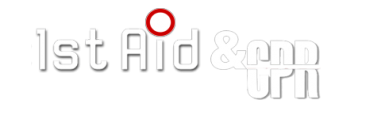Seattle CPR is one of the best training providers of CPR programs in Washington. It has a foot up on other providers because of its high-quality training programs and incredibly affordable rates. It offers a great selection of programs, primarily in Basic Life Support and Advanced Life Support. The first category can be taken by the general public and healthcare providers (HCPs) while the second is only for HCPs. There are a total of five classes available at Seattle CPR, not including their accompanying re-certification programs.
Enrolment is quite easy. Students can visit the Seattle CPR website for complete contact details or the online application form. Enrolment details sent through e-mail or over the telephone are alternative ways to enroll. Walk-ins during business hours are highly encouraged by the staff as well.
Seattle CPR training certificates
All of the programs offered at Seattle CPR are CPR certification programs where the provider awards students who complete their programs a CPR training certificate. These certificates have a validity of 24 months. Before they expire, rescuers can renew them through re-certification programs (not available for all classes).
Seattle CPR training programs

Basic Life Support
There are three BLS classes at Seattle CPR. Only the third has an accompanying re-certification program. BLS programs are focused on teaching basic CPR to trainees. They focus more on the development of skills in chest compressions, rescue breaths, and defibrillation, rather than the complex CPR management usually reserved for a hospital or clinical setting.
- Basic Heartsaver CPR – the general public, 4 hours – A general public program for basic CPR teaches the basic skills for one-person CPR rescue. Trainees are also taught how to use an AED – automated external defibrillator – and a few first aid skills, such as wound care and bandaging.
- Basic Heartsaver CPR (C) – healthcare providers, 4.5 hours – This basic CPR program for HCPs tailors the lessons for people in healthcare, either providers or professionals. It focuses on one-person CPR rescue and basic first aid as well.
- Basic Life Support for HCPS – healthcare providers, 4.5 hours – Unlike the first two programs, BLS teaches one-person and two-person CPR rescue to trainees. It also introduces them to the 2010 BLS release from the American Heart Association. (Re-certification is 4 hours)
Advanced Life Support
ALS programs are tailored for people who work in healthcare, primary healthcare professionals. The programs teach CPR management with equipment and medication, usually found in a clinical setting. Students are taught about the equipment (bag valve masks, tubes) and medication found in the crash cart. How to read an ECG is also a topic included in the program.
- Advanced Cardiac Life Support (ACLS) – 16 hours over 2 days – ACLS teaches CPR management for cardiovascular emergencies of adult victims. (Re-certification is 5 to 6 hours)
- Pediatric Advanced Life Support (PALS) – 14 hours over 2 days – PALS on the other hand teaches CPR management for pediatric patients. Pediatrics refers to people who are younger than 18 years old. CPR is very different for infants and smaller children, compared to CPR for adults and teenagers. Pediatric pharmacology and assessment are important parts of PALS training as well. (Re-certification is 6 to 8 hours)
